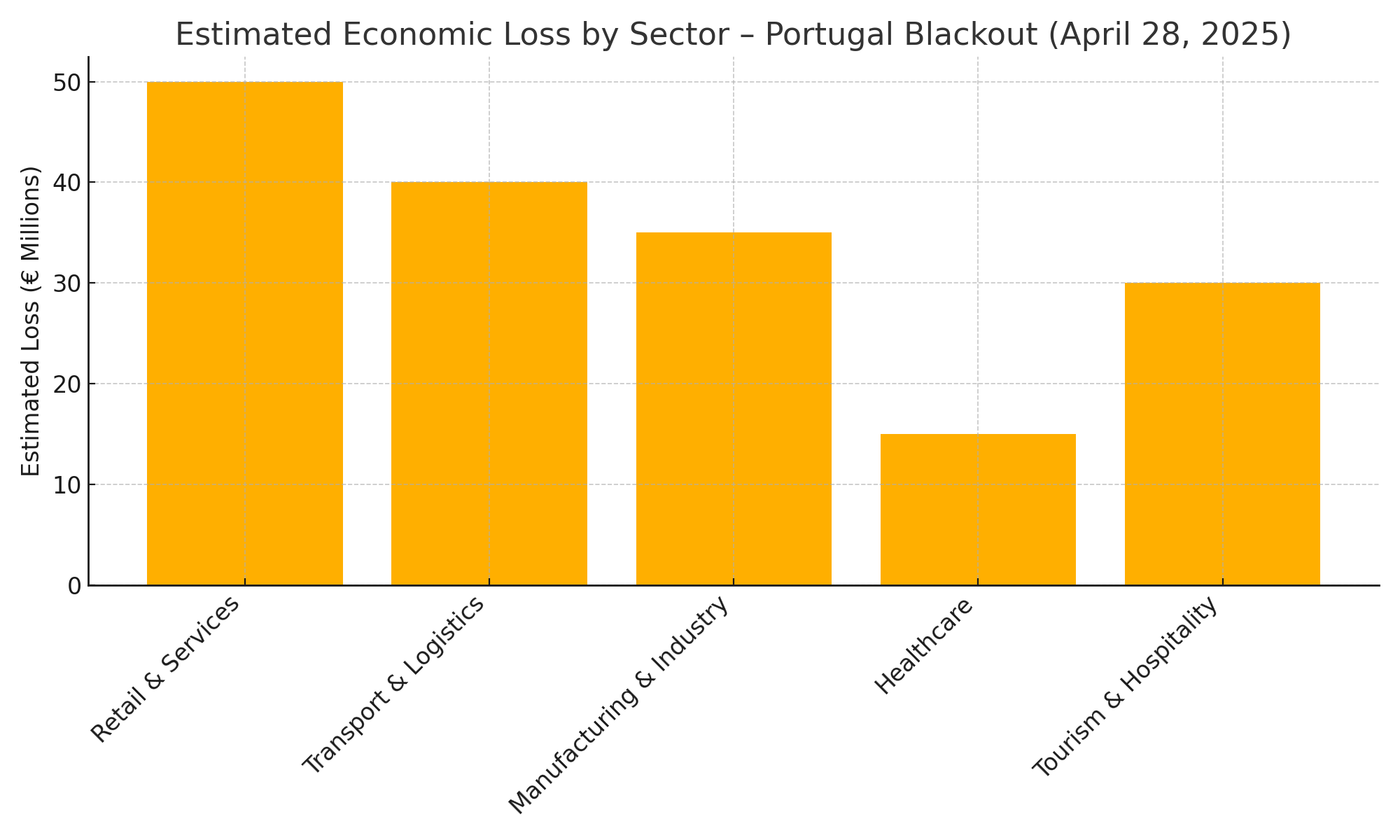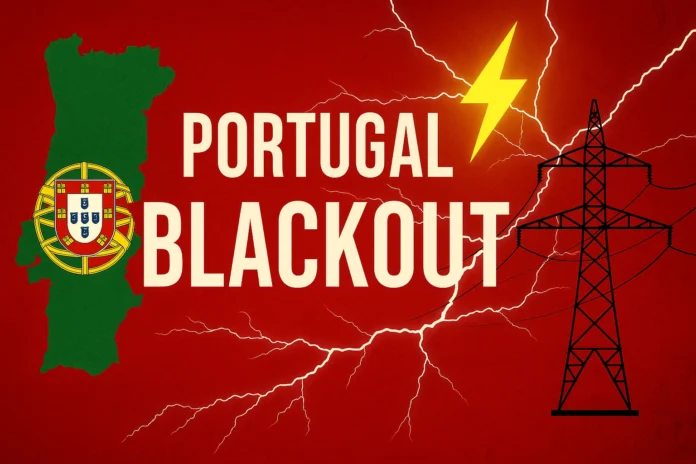Lisbon, April 29, 2025 –
Portugal blackout April 28 left millions without power, shutting down public transport, businesses, and daily life across major cities. The widespread power outage, which lasted for several hours, resulted in an estimated €200 million in economic losses. As authorities investigate the cause, the incident highlights the vulnerability of critical infrastructure across the country. According to initial estimates, the nationwide outage may have caused economic losses between €150 million and €200 million, with critical sectors like retail, transportation, manufacturing, healthcare, and tourism bearing the brunt.
What Caused the Blackout?
At approximately midday, Portugal’s national electricity grid experienced a sudden failure, leading to a widespread collapse of energy distribution. The blackout was triggered by a sharp, unexplained loss of 15 gigawatts of electricity in Spain—about 60% of its national demand—causing a ripple effect across the Iberian Peninsula.
While investigations are still underway, early analysis suggests the outage could be tied to a technical fault or instability in the transnational power grid. No official confirmation has yet been released regarding the root cause.
Economic Impact by Sector
The blackout’s toll on Portugal’s one-day economy has been severe. Key sectors faced the following estimated losses:

Real-World Disruptions
Retail and Payment Systems
Supermarkets, shops, and restaurants were forced to shut down as electronic payment systems and ATMs went offline. Many businesses reported significant revenue losses, especially in urban centers like Lisbon and Porto.
Transport & Logistics Paralysis
Public transport—including metro and train networks—ground to a halt, and traffic lights across major intersections failed, leading to widespread congestion and delays. Logistics companies also reported delays in delivery schedules and supply chain interruptions.
Industrial Shutdowns
Factories were forced to suspend operations, resulting in missed production targets, damaged equipment from sudden stops, and delayed shipments. Industries in electronics, auto parts, and textiles reported measurable financial hits.
Healthcare Challenges
While hospitals continued critical operations using emergency generators, outpatient services and elective surgeries were postponed. This led to both financial losses and service backlogs in the healthcare system.
Impact on Tourism and Hospitality
The hospitality industry, already sensitive to cancellations and disruptions, faced hotel rebookings, stranded tourists, and a drop in customer footfall in restaurants, museums, and public venues.
Government Response and Infrastructure Concerns
Following the Portugal blackout April 28, government officials have vowed to investigate the root cause of the outage and strengthen national power infrastructure. Preliminary reports suggest equipment failure at a central grid station, but experts warn of broader systemic vulnerabilities. Local authorities have also urged citizens and businesses to invest in backup energy sources. This incident has reignited debates around Portugal’s energy resilience and the need for investment in smart grid technologies. As the country recovers, policymakers face mounting pressure to prevent such widespread disruptions in the future and ensure reliable power supply to meet growing demand.
What This Means for Portugal’s Future
The blackout has exposed structural vulnerabilities in Portugal’s energy and digital infrastructure. Experts and policymakers are now calling for urgent investments in:
-
Decentralized energy systems and renewables
-
Stronger grid monitoring and fail-safe technologies
-
Backup power for essential services
-
Offline-capable financial systems and emergency business protocols
The April 28 power outage in Portugal stands as a stark reminder of how fragile modern economies are in the face of energy infrastructure failure. A blackout that lasted just hours has already cost the country hundreds of millions of euros, disrupted millions of lives, and highlighted the urgent need for systemic resilience. This event has become a turning point for Portugal’s energy future.
As the investigation continues, this event may serve as a catalyst for energy reform, digital infrastructure upgrades, and emergency readiness across Portugal and the wider EU.

